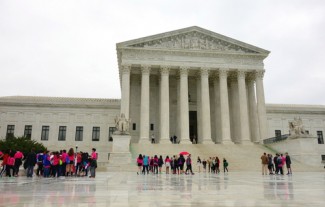SCOTUS accepts case that could limit filing of patent cases in friendly jurisdictions

The U.S. Supreme Court on Wednesday agreed to decide a case on patent venue that could hamper the filing of infringement suits in plaintiff-friendly jurisdictions such as the Eastern District of Texas.
At issue is whether the patent venue statute, which governs where cases may be filed, is affected by a general federal law on venue, according to the cert petition (PDF). The more lenient general federal law, as amended in 1988, allows federal suits to be filed wherever a corporation is subject to personal jurisdiction. The Wall Street Journal (sub. req.), Bloomberg News, SCOTUSblog, Law.com (sub. req.) and Reuters have stories.
The U.S. Supreme Court had held in 1957 that the patent venue law isn’t affected by the general law on venue, and that the patent law allows suits to be filed in the corporation’s state of incorporation. But after Congress amended the general law on corporate venue, the U.S. Court of Appeals for the Federal Circuit ruled that the general law modifies the patent venue law.
In a press release (PDF), the Washington Legal Foundation deemed the cert grant a victory in the fight against patent trolls that buy patents and sue for infringement in friendly jurisdictions. The Federal Circuit case law “raises serious due process concerns and encourages rampant forum shopping by ‘patent trolls,’ ” the WLF said. The Electronic Frontier Foundation had also urged (PDF) the Supreme Court to grant cert, arguing that the Federal Circuit precedent was “opening up practically nationwide venue in patent cases.”
The case is TC Heartland v. Kraft Food Brands Group. The SCOTUSblog case page is here.



